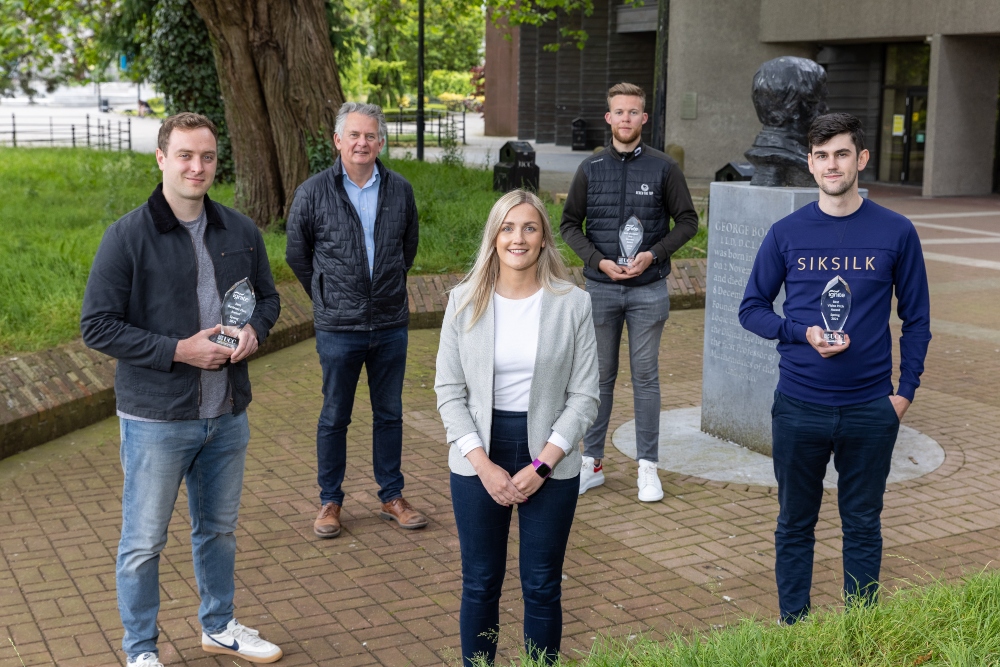IGNITE director Eamon Curtin is on a mission to develop the right combination of start-up skills, business knowledge and entrepreneurial attitude among emerging founders.
It is quite a track record when you think about it. The IGNITE programme at UCC has worked with close to 170 start-ups over the last 11 years and these companies have created more than 370 jobs.
In recent months the programme has been changed to include two full-time cohorts a year. As well as this it offers evening programmes for aspiring founders, multidisciplinary hackathons and a start-up advice clinic for entrepreneurs. Crucially it has spawned a vibrant community of innovators that include alumni such as Trustap’s Conor Lyden, Pitseal’s Marion Cantillon, Dr Fiona Edwards-Murphy from ApisProtect and Teleatherapy’s Clare Meskill.
“Our ethos is to learn fast. And we want our founders to be agile in moving forward, persistent in overcoming challenges, creative in coming up with solutions, resourceful in getting things done and resilient in dealing with setbacks”
Applications are now open for the next cohort with a deadline of 5 June for the programme that commences in July.
ThinkBusiness caught up with Eamon Curtin, director of IGNITE, to explore the new structure and the future of IGNITE.
Tell us about the new format for IGNITE and why change was needed?
Just like a start-up, we listen to our customers, in our case early stage start-up founders. We observe how they behave and we evolve the programme to meet their changing needs. Over the years we have seen a greater diversity of start-up promoters contacting us with their start-up ideas.
They are coming to us at different stages of development, at different times throughout the year and with different ideas that will progress at different rates. Our initial response was to open for applications every six months. We have now taken that one step further and we now take on smaller cohorts every three months.
At the same time, we’ve introduced a more flexible programme of workshops so that IGNITE start-up founders can take advantage of the specific supports they need when they need them, underlining a core IGNITE value, that the start-ups come first and the programme should fit the start-up not the other way around.
Describe the ethos of IGNITE post-pandemic and what goes into preparing entrepreneurs for the real world?
IGNITE is designed to develop the right combination of start-up skills, business knowledge and entrepreneurial attitude or approach to give the founder the best chance of success. Our ethos is to learn fast. And we want our founders to be agile in moving forward, persistent in overcoming challenges, creative in coming up with solutions, resourceful in getting things done and resilient in dealing with setbacks.
How would you describe Ireland’s start-up ecosystem post-pandemic?
Ireland’s start-up ecosystem is vibrant. In a post-pandemic world, start-up founders have more freedom to develop their ideas, using time that might otherwise be spent commuting and the flexibility that working from home offers to work on their start-ups. And they are finding that it’s easier than ever to get started. No code and low code development platforms allow web and mobile applications to be quickly tested without the need for traditional programming languages, online marketplaces allow products to be test marketed quickly and advances in manufacturing reduce the barriers associated with minimum order quantities. Today the challenge isn’t getting started, as it was before. Today the real challenge is getting to financial sustainability and then to profitable scale.
With the recent job cuts at US tech giants, this should concentrate minds on the importance of indigenous businesses. What more could Ireland be doing to better support start-ups?
Ireland is doing lots right and the supports offered by the Local Enterprise Offices, Enterprise Ireland and others are envied by start-up founders in other countries. If anything, Irish start-up founders can struggle to take full advantage of the financial and other supports available. Luckily IGNITE can help with practical advice and guidance to do just that.
Main image at top (left to right): Eamon Curtin, IGNITE director, Cllr Seamus McGrath, Michelle Dorgan, IGNITE programme manager





